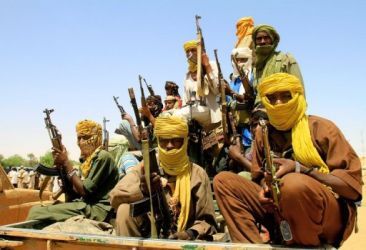Machar forces claim Sudanese rebels backing gov’t forces
October 6, 2016 (BENTIU) – South Sudan’s armed opposition forces loyal to the country’s former vice president, Riek Machar have accused Sudanese rebel groups of allegedly fighting alongside forces loyal to President Salva Kiir in oil-rich Unity state.

Weirial Puok Baluang, the official spokesman for the rebel-appointed the governor of Unity State claimed both the Justice for Equality Movement (JEM) and the Sudan People’s Liberation Army-North (SPLM-N), have allegedly joined South Sudanese government troops to fight rebels in Bentiu and Rubkotna county.
“We are informing the world about the second involvement of foreign mercenaries in south Sudan conflict. The combined JEM and SPLA-N have returned back this week to Unity state’s soil in response to an invitation by [President Salva] Kiir’s regime,” he said.
Baluang claimed the continued support allegedly being given to South Sudanese government indicate that the current militants were weak and would soon be defeat rebels forces in all Unity state fronts.
According to the armed opposition official, JEM fighters are currently located in Mayom, Tor and Abiemnhom areas, while the SPLA-N are stationed in Parieng, Unity state oilfields and Kilo-30 in Bentiu outskirts.
He said the rebels would defeat both the army and those backing them.
“The SPLA in opposition will fight to the last man against those mercenaries that help to maintain the toothless tribal JCE [Jieng Council of Elders] kingdom in power. SPLA-IO soldiers will die as heroes for a cause while the mercenaries will die in vain,” he said.
In 2014, a United Nations reports confirmed the presence of JEM fighters in Unity State, a claim which was later dismissed by both the Darfur-rebel group and South Sudanese government officials.
Machar recently warned that his armed opposition movement (SPLM-IO) would fight the Juba government, which he described as “dictatorial”.
(ST)
